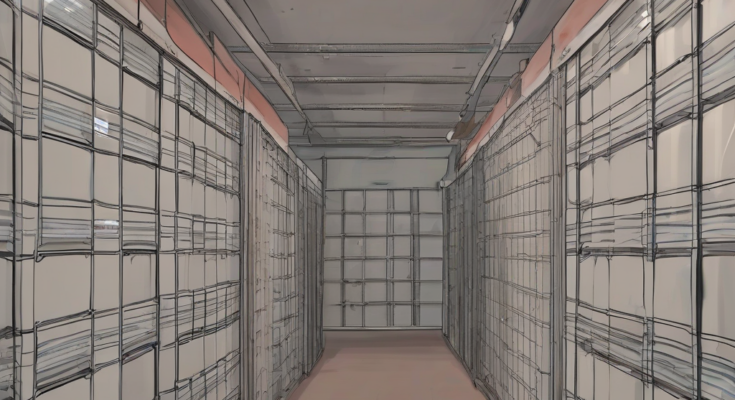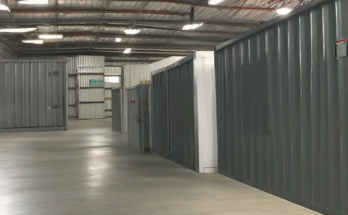Unlocking Unbeatable Deals: Your Guide to the Cheapest Storage Units Near You
Finding affordable storage can feel like a treasure hunt. Between varying unit sizes, contract lengths, insurance options, and facility amenities, the search for the “cheapest storage units near me” can quickly become overwhelming. This comprehensive guide breaks down the process, offering strategies and tips to help you secure the best possible deal without sacrificing quality or security.
Understanding Your Storage Needs
Before diving into the search, take time to assess your specific needs. This crucial first step will significantly narrow your options and prevent you from overspending on unnecessary space or features.
- Estimate the amount of space you need: Measure your belongings carefully. Consider using online storage calculators to help you estimate the size of the unit you’ll require. Remember to account for potential future storage needs.
- Determine your storage timeframe: Will you need the unit for a month, a year, or longer? Longer-term rentals often come with discounted rates.
- Identify your budget: Set a realistic budget before starting your search. Knowing your financial limit will help you stay focused and avoid impulsive decisions.
- Consider necessary features: Do you require climate-controlled storage to protect sensitive items? Do you need drive-up accessibility for easy loading and unloading? List your must-have features and prioritize them based on your budget and needs.
Strategic Search Techniques for Cheap Storage
Now that you understand your requirements, let’s explore effective strategies for finding the cheapest storage units near you.
- Utilize online search engines: Start by using search engines like Google, Bing, or DuckDuckGo, incorporating keywords like “cheap storage units near me,” “affordable self storage,” or “discount storage [your city/zip code].”
- Explore dedicated storage unit websites: Websites like SpareFoot, StorageCafe, and others aggregate listings from multiple storage facilities, allowing you to compare prices and features side-by-side. These sites often feature filters to refine your search based on price, size, and location.
- Check local classifieds: Websites like Craigslist or Facebook Marketplace may offer listings for individuals renting out storage space. This can sometimes lead to surprisingly affordable options, but proceed with caution and ensure the security and legitimacy of the offer.
- Directly contact storage facilities: Don’t rely solely on online searches. Visit or call storage facilities in your area to inquire about current rates and any potential discounts. Many facilities are willing to negotiate, especially during off-peak seasons or if you commit to a longer-term rental.
Negotiating for Better Deals
Don’t be afraid to negotiate! Storage facilities often have some flexibility in their pricing.
- Inquire about discounts: Ask about discounts for long-term rentals, military personnel, students, or seniors. Many facilities offer special promotions throughout the year.
- Compare prices from multiple facilities: Armed with quotes from several facilities, you’ll be in a stronger position to negotiate a lower rate. Let them know you’ve received better offers elsewhere.
- Consider off-peak seasons: Storage demand is typically lower during certain times of the year. Renting during these periods can often result in significantly lower rates.
- Pay upfront: Some facilities offer discounts for paying several months’ rent in advance. This might be a good option if you’re confident you can afford it and the discount is substantial enough.
- Be polite and professional: Maintaining a respectful and professional demeanor throughout the negotiation process can go a long way.
Factors Affecting Storage Unit Prices
Several factors influence the cost of storage units. Understanding these factors will help you make informed decisions.
- Location: Storage units in highly populated or convenient areas tend to be more expensive than those in less desirable locations.
- Unit size: Larger units naturally cost more than smaller ones. Accurate estimation of your storage needs is crucial to avoid paying for unnecessary space.
- Climate control: Climate-controlled units offer temperature regulation to protect sensitive items from extreme temperatures and humidity, but they typically command higher prices.
- Facility amenities: Features like drive-up accessibility, security systems, and on-site management can impact the cost of storage.
- Lease terms: Longer-term leases often come with lower monthly rates.
- Insurance: While not directly part of the unit’s rent, insurance costs should be factored into your overall budget.
Tips for Saving Money on Storage
Beyond negotiating prices, consider these additional money-saving strategies:
- Declutter before storing: The less you need to store, the smaller the unit you’ll require, leading to significant savings. Take the time to declutter and get rid of items you no longer need or use.
- Utilize off-site storage solutions: Consider storing less frequently used items with family or friends to reduce your storage needs.
- Pack efficiently: Proper packing techniques can maximize space utilization, potentially allowing you to rent a smaller, more affordable unit.
- Compare insurance options: Shop around for storage insurance to find the most affordable coverage that meets your needs.
- Read the contract carefully: Before signing any lease agreement, thoroughly review the terms and conditions to avoid unexpected fees or charges.
Avoiding Storage Scams
When searching for cheap storage, be vigilant about potential scams.
- Verify the facility’s legitimacy: Check online reviews and ensure the facility is properly licensed and insured.
- Avoid deals that seem too good to be true: Unusually low prices should raise red flags. Investigate thoroughly before committing.
- Never pay for a unit without visiting it first: See the unit in person to verify its condition and size.
- Use secure payment methods: Avoid paying with cash or through untrusted online payment systems.
- Read the contract thoroughly before signing: Understand all terms and conditions to avoid hidden fees or surprises.
Long-Term Cost Considerations
While focusing on the initial price is important, remember to consider long-term costs.
- Rent increases: Be aware that rent may increase after the initial lease term. Inquire about the facility’s policy on rent adjustments.
- Late fees: Avoid incurring late fees by setting up automatic payments or reminders.
- Additional fees: Be aware of potential additional fees, such as administrative fees, gate access fees, or other charges.


